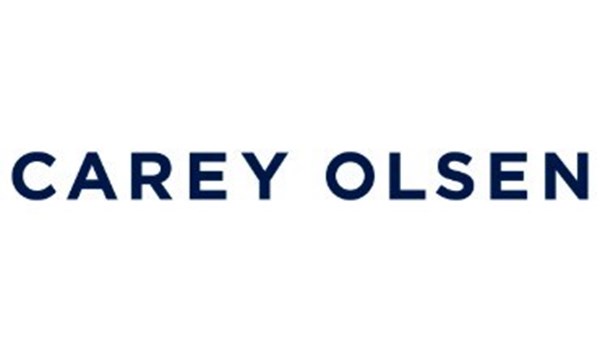As criminals become ever more sophisticated, artificial intelligence is spearheading the fightback against money laundering and other financial crimes. The global market for is expected to explode over the next decade, fuelled by heightened regulatory pressure, the rise of sophisticated financial crime and the rapid adoption of artificial intelligence in compliance systems. According to a report published yesterday (2 September) by market intelligence company Precedence Research, the market was worth USD 1.78 billion in 2024 and is forecast to rocket from USD 2.07 billion in 2025 to USD 8.02 billion by 2034, representing a compound annual growth rate (CAGR) of 16.25%. This unprecedented surge reflects demand from banks, fintechs, insurers and payment providers for technology that can keep pace with increasingly complex money laundering techniques.
AI DRIVING CHANGE
Artificial intelligence and machine learning are becoming central to the AML landscape. By analysing vast data sets and recognising hidden patterns, these systems can identify suspicious behaviour with far greater precision than traditional tools. Importantly, they reduce false positives, a longstanding problem that has strained compliance departments. And because AI technology improves over time as it learns from incoming data, it is well suited to adapt to evolving criminal strategies and changing regulatory demands. Vendors and financial institutions alike see AI-powered AML as transformative, enabling more effective monitoring, real-time risk assessment and streamlined reporting processes. For regulators, the technology offers reassurance that firms can maintain compliance while handling the exponential growth of digital financial transactions.
NORTH AMERICA
North America dominated the global AML market in 2024, accounting for 35% of revenue, with the region’s strength stemming from the advanced systems already embedded across major financial institutions as well as the willingness of banks, insurers and payment providers to invest in cutting-edge compliance technology. The US market alone, valued at USD 436.1 million in 2024, is expected to expand to more than USD 2 billion by 2034 – a CAGR of 16.49%. Rising financial crime – including fraud, identity theft and terrorist financing – together with the prospect of heavy fines for non-compliance, is prompting institutions to accelerate adoption. US firms are also investing heavily in AI, automation and blockchain-based solutions to improve detection accuracy and reduce costs.
ASIA PACIFIC
While North America holds the largest share, the Asia-Pacific (APAC) is projected to record the fastest expansion. Rapid economic growth, modernisation of financial systems and a surge in cross-border transactions are driving demand for advanced AML tools. Regulators across the region are tightening compliance frameworks to align with global standards, compelling banks and fintechs to upgrade.
EUROPE
Like its North American and APAC counterparts, Europe’s AML market is set for substantial growth as regulators enforce successive EU anti-money laundering directives requiring stringent compliance. Institutions face hefty fines for deficiencies in their systems, creating strong incentives to deploy advanced monitoring and analytics. Banks are turning to AI to enhance transaction surveillance, support risk-based decisions and counteract rising cyber-enabled fraud. In the UK, both the Financial Conduct Authority and the National Crime Agency are driving efforts to strengthen transparency and accountability. The result is rising investment in AI-driven AML software across the banking and fintech sectors.
MARKET SEGMENTATION
Transaction monitoring represented the largest solution category in 2024, capturing 35% of global revenue. However, trade-based AML analytics is expected to be one of the fastest growing areas as regulators and institutions seek to tackle complex, cross-border trade manipulation schemes. Software accounted for 70% of the market last year, though demand for associated services – such as consulting – is on the rise. Large enterprises made up 60% of spending in 2024, reflecting the high compliance burden borne by multinational banks and insurers. However, small and medium-sized enterprises are expected to increase investment sharply in coming years as regulatory expectations extend across the financial ecosystem. Among end users, banking, financial services and insurance firms commanded half the market, while fintech and payment service providers are set to post the strongest growth.
DRIVERS OF EXPANSION
The expansion of the AML sector is being propelled by three main factors: the rising incidence of financial crime, intensifying regulatory scrutiny and advances in technology. Fraud, terrorist financing, bribery and cyber-enabled theft continue to pressure financial systems worldwide. Regulators across the globe are responding with increasingly prescriptive compliance regimes, exposing institutions to reputational risk and heavy penalties for failures. At the same time, rapid digitalisation – from mobile payments to online banking and e-commerce – has broadened the risk environment. Financial institutions are therefore compelled to invest in monitoring technologies capable of handling higher transaction volumes and detecting anomalies in real time.
OUTLOOK
With digital finance continuing to grow, the AML market is expected to expand well beyond the traditional financial sphere. Online marketplaces, real estate, gaming and investment platforms are emerging as key areas of adoption while the integration of AI and machine learning into compliance infrastructures promises to transform detection and reporting, ensuring that businesses and institutions remain resilient in the face of increasingly complex money laundering schemes.



